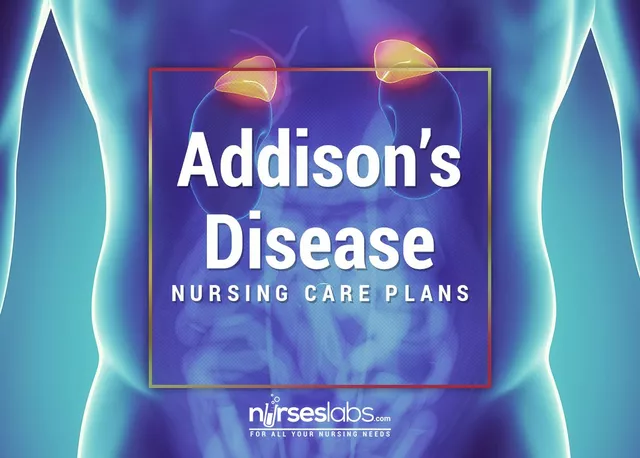
Are personality disorders mental illnesses by definition?
Understanding the Different Types of Personality Disorders: What Makes Them Mental Illnesses?
Personality disorders are a type of mental illness that can affect an individual's ability to cope with life, work, and relationships. They are characterized by long-standing patterns of behavior, thoughts, and feelings that are inflexible and cause distress or problems functioning in various areas of life. People with personality disorders typically do not recognize that their behavior is causing problems and may blame others for their difficulties.
There are several types of personality disorders, all of which are classified as mental illnesses. These include antisocial personality disorder, borderline personality disorder, narcissistic personality disorder, histrionic personality disorder, and obsessive-compulsive personality disorder. Each disorder is characterized by different patterns of thoughts, feelings, and behaviors. In general, people with personality disorders have difficulty regulating their emotions, maintaining healthy relationships, and functioning in everyday life.
Antisocial personality disorder is characterized by an absence of conscience and disregard for social norms. People with this disorder tend to be manipulative and have difficulty understanding the consequences of their actions. They may engage in criminal behavior, impulsivity, and aggression.
Borderline personality disorder is characterized by instability in relationships, self-image, and mood. People with this disorder may have difficulty regulating their emotions and may be prone to impulsive or self-harming behaviors. They may also experience intense feelings of abandonment, loneliness, and emptiness.
Narcissistic personality disorder is characterized by an inflated sense of self-importance, a need for admiration, and a lack of empathy for others. People with this disorder may have an exaggerated sense of entitlement and an inability to take criticism. They may also be overly sensitive and easily offended.
Histrionic personality disorder is characterized by an excessive need for attention, an overly dramatic style of communication, and a tendency to be easily influenced. People with this disorder may be overly dramatic, flirtatious, and manipulative.
Obsessive-compulsive personality disorder is characterized by an excessive preoccupation with orderliness, perfectionism, and control. People with this disorder may be overly rigid, inflexible, and overly focused on details. They may also be excessively concerned with productivity and efficiency.
In conclusion, personality disorders are mental illnesses by definition. They are characterized by patterns of behavior, thoughts, and feelings that are inflexible and cause distress or problems functioning in various areas of life. Each disorder is characterized by different patterns of thoughts, feelings, and behaviors. People with personality disorders may have difficulty regulating their emotions, maintaining healthy relationships, and functioning in everyday life.
Exploring the Controversy Around Defining Personality Disorders as Mental Illnesses
Personality disorders are a complex and controversial topic in the mental health field. On one hand, certain personality traits can be indicative of a mental health issue, such as paranoia or extreme anger. On the other, some argue that personality disorders are not necessarily mental illnesses and should not be treated as such. This has caused a great deal of debate and confusion among mental health professionals and has led to the exploration of the controversy surrounding the definition of personality disorders as mental illnesses.
The American Psychiatric Association defines a mental illness as a “clinically significant behavioral or psychological syndrome or pattern that occurs in an individual and is associated with present distress or disability or with a significantly increased risk of suffering death, pain, disability or an important loss of freedom.” This definition is often used as the basis for determining whether or not a personality disorder should be classified as a mental illness.
Proponents of the idea that personality disorders are mental illnesses argue that they can lead to significant distress or disability. They further argue that the symptoms of a personality disorder can interfere with a person’s ability to function in everyday life, leading to an increased risk of suffering physical or psychological harm.
Opponents of the idea that personality disorders are mental illnesses argue that many of the symptoms of a personality disorder are simply a part of someone’s personality. They argue that these traits do not necessarily indicate a mental health issue and should not be treated as such. They also argue that many personality disorders, such as histrionic personality disorder, are often misdiagnosed and that the diagnosis is often used as an excuse to avoid personal responsibility.
Ultimately, the debate around whether or not personality disorders should be classified as mental illnesses is likely to continue for some time. It is important to acknowledge both sides of the argument and to recognize that there is no single answer that will satisfy everyone. Ultimately, the decision about whether or not to classify a personality disorder as a mental illness should be made on a case-by-case basis, taking into account the individual’s symptoms and the impact on their life.
Examining the Evidence: Are Personality Disorders Really Mental Illnesses?
It is widely accepted that personality disorders are indeed mental illnesses, but is there evidence to back this up? To examine this question, we must first look at the definition of a mental illness and the criteria used to diagnose personality disorders.
By definition, a mental illness is a disorder of the brain that affects a person's thoughts, feelings, and behaviors. This is a broad definition and includes a wide range of disorders, from depression and anxiety to schizophrenia and bipolar disorder. But does it also include personality disorders?
Personality disorders are defined as long-term patterns of behavior and inner experiences that differ from what is considered normal. They are categorized into three groups: odd and eccentric, dramatic, and anxious. Common symptoms of a personality disorder include difficulty in relating to others, a distorted sense of self, and difficulty controlling emotions.
Studies have shown that people with personality disorders often have difficulty controlling their emotions, have difficulty forming relationships, and experience severe stress. This suggests that personality disorders are indeed mental illnesses.
In addition, research has indicated that people with personality disorders are more likely to suffer from depression and other mental illnesses. This further supports the notion that personality disorders are in fact mental illnesses.
The evidence presented here suggests that personality disorders are indeed mental illnesses. However, it is important to note that not everyone who has a personality disorder will necessarily have a mental illness. It is also important to remember that each person's experience of mental illness is unique and should be treated as such.
Exploring the Impact of Diagnosing Personality Disorders as Mental Illnesses on Treatment Options
Personality disorders are complex mental illnesses that can cause a great deal of distress and disruption in a person's life. While they are not always considered to be mental illnesses in the traditional sense, they can have a dramatic impact on how a person navigates the world and interacts with other people. As such, it is important to understand the implications of diagnosing a personality disorder as a mental illness, and how this affects treatment options.
The primary difference between diagnosing a personality disorder as a mental illness and as a personality disorder is the level of medical intervention that may be required. For example, if a person is diagnosed with a mental illness, they may be prescribed medication to help manage the symptoms. However, if a person is diagnosed with a personality disorder, they may be more likely to receive therapy and counseling to help them learn how to better manage their behavior and their emotions.
Another difference is the stigma associated with mental illness. In the past, people with mental illnesses may have been seen as "crazy" or "dangerous" and been subjected to discrimination and unfair treatment. By diagnosing a personality disorder as a mental illness, it can help to reduce the stigma associated with it, and make it easier for people to seek help without fear of being judged or mistreated.
Finally, by diagnosing a personality disorder as a mental illness, it can help to ensure that the right kind of treatment is given. Because personality disorders can be difficult to diagnose, it is important that the right kind of treatment is provided to ensure that the person is able to cope and manage their condition. This can include medication, therapy, and lifestyle changes.
Ultimately, diagnosing a personality disorder as a mental illness can have a significant impact on treatment options. It can help to reduce the stigma associated with mental illness, and ensure that the right kind of treatment is given to help the person manage their condition. While it is important to remember that personality disorders are not mental illnesses in the traditional sense, understanding the implications of diagnosing them as such can help to ensure that people get the help they need.





